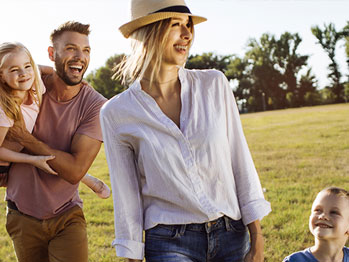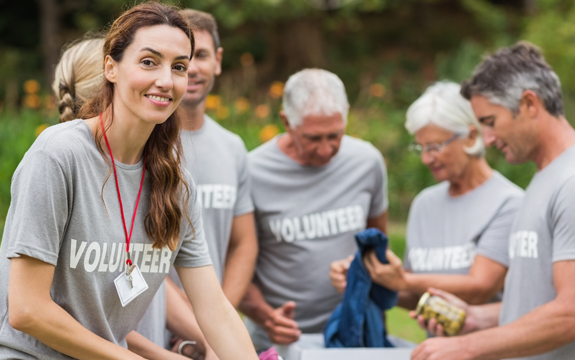
We may not always be aware of their presence but few of us will go through life without being impacted by the efforts of Australia’s many volunteers. So how can you contribute and where should you start?
Volunteering is a great way to connect you to your community.
A valuable part of life in Australia, volunteer workers contribute around 743 million hours to the community each year, according to the Australian Bureau of Statistics.
Touching every section of Australian society including education, emergency services, sport and recreation, arts and heritage as well as the social services, volunteers make an estimated annual contribution of $290 billion to our economic and social good.
The ABS’s General Social Survey shows that 5.8 million people or 31% of the Australian population aged 15 years and over, participated in voluntary work in 2014. The participation rate is highest among those aged between 15 and 17 (42%) followed by those aged 35-44 (39%).
The same survey concluded that over a 12-month period, volunteers contribute 743 million hours to the community, equating to an average of 128 hours per volunteer, across a diverse range of activities. Half of volunteers contributed up to 50 hours of voluntary work and almost 20 per cent of volunteers performed more than 200 hours of volunteering throughout the year.
The figures also show that once people start volunteering, they tend to keep doing it with family members usually following. Nearly half of volunteers had volunteered for more than 10 years. More than two-thirds of volunteers (70%) also reported that at least one of their parents had participated in voluntary work.
But while many Australians have the skills, the flexibility and the motivation to volunteer their time within their local communities, it can prove difficult knowing who to approach or where to start.
Volunteering Australia (VA) CEO, Adrienne Picone says the sector is evolving with newer forms of volunteering including virtual volunteering, spontaneous volunteering and corporate volunteering making it easier than ever for strata residents to donate their time.
Picone, whose organisation defines volunteering as “time willingly given for the common good and without financial gain”, says fundraising and sales, teaching/providing information, coaching or refereeing and food preparation/serving are among the most common forms of volunteering in this country.
The most common types of organisations for which people volunteered related to sport and physical recreation, education and training, welfare/community and religious groups, she says.
“Example of the new form of volunteering include taking care of someone else in the community (excluding family members), mentoring or teaching, informally assisting sports clubs or teams and providing settlement and welcoming activities to new members of the community.”
Others prefer to go directly to the organisation concerned with national parks, food pantries, local libraries, art museums, political campaigns, disaster relief organisations, environment and conservation groups and animal rescue shelters among the many groups dependent on altruists willing to provide a service for no financial gain.
To help make it easier for those seeking to offer a hand and to find volunteer roles that suit their interests, motivation, availability and location, VA has launched an initiative called GoVolunteer.
Available as an app, it has a large range of volunteer roles including one-off, short term and long-term opportunities and also features stories, told in first person, of volunteers who have already committed to a short or long-term role.
Picone says unlike paid positions, volunteering is suitable for every segment of the community, including migrants, the elderly, those with young families and those with a disability, so it may also be worthwhile contacting your state or peak body or nearest Volunteer Resource Centre to see how your skills can best be utilised.
“When thinking of volunteering it is important to consider your motivations for volunteering how much time you can commit and what you hope to get out of it. This will help you to choose a role that is a good match for you. [Volunteering] has so many benefits that we recommend everyone give it a go.”











